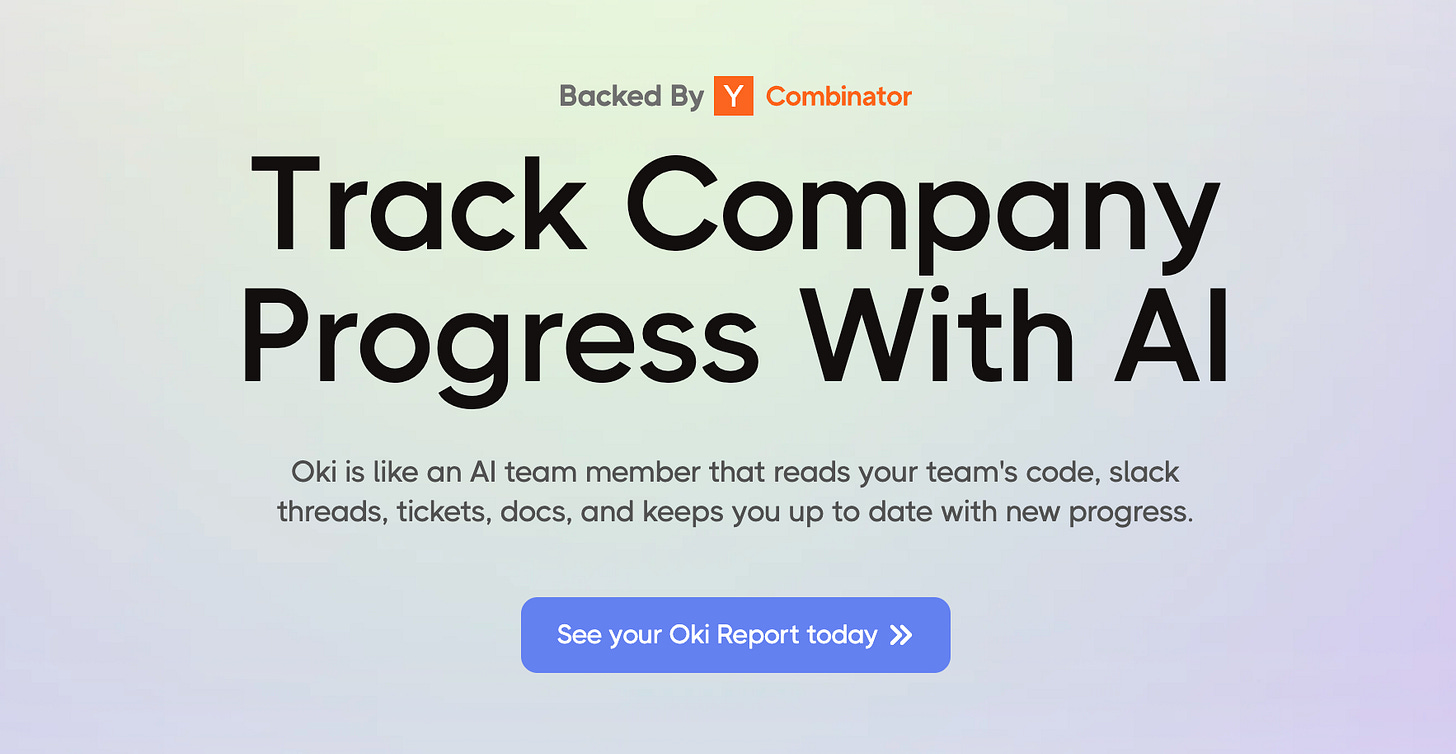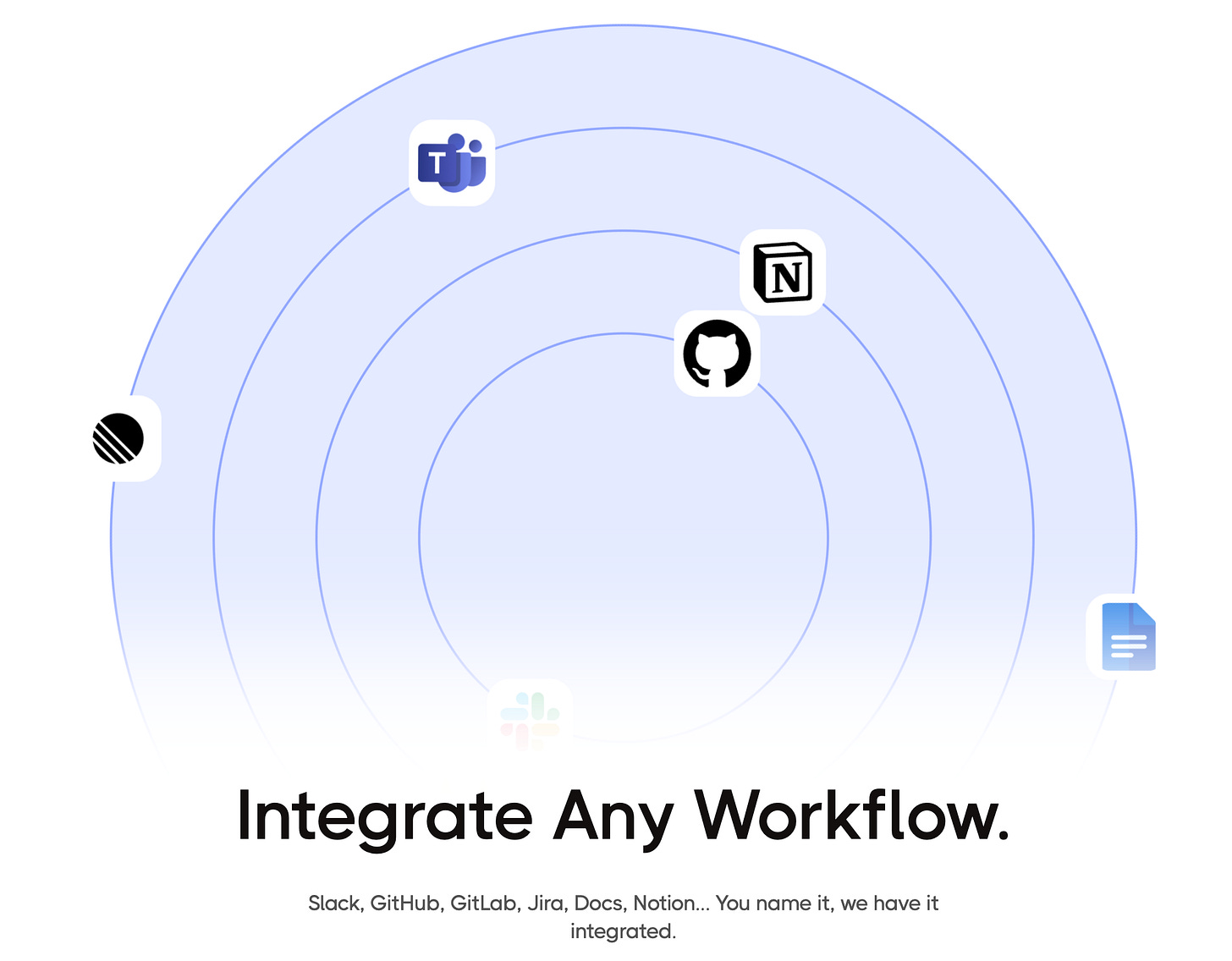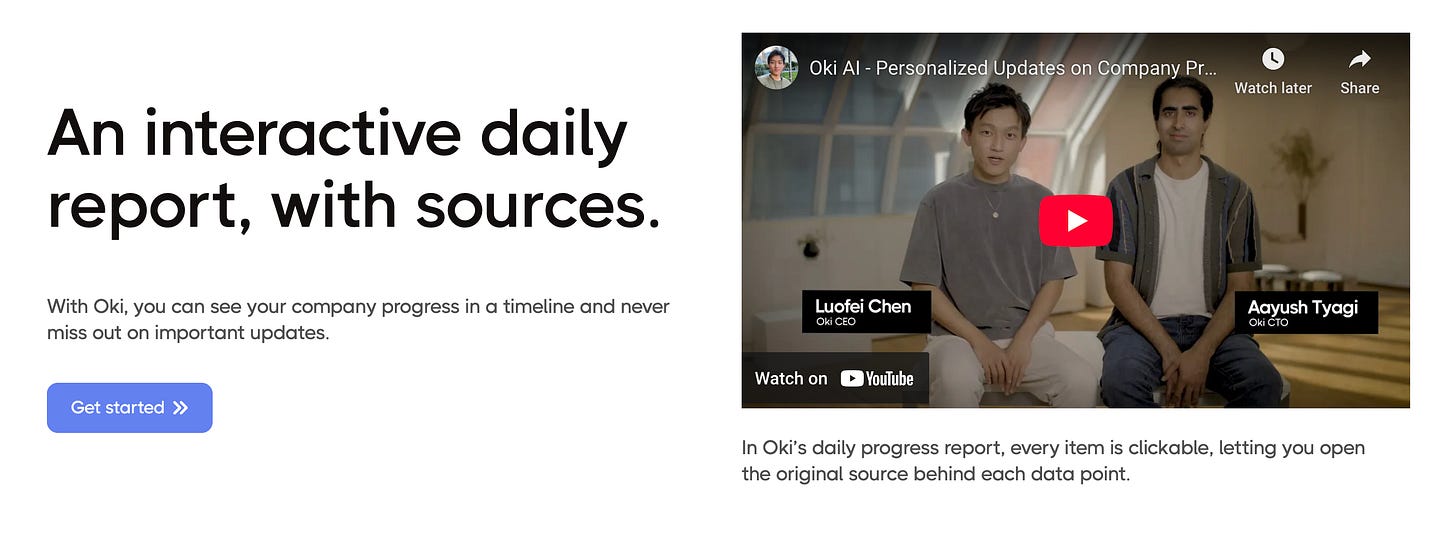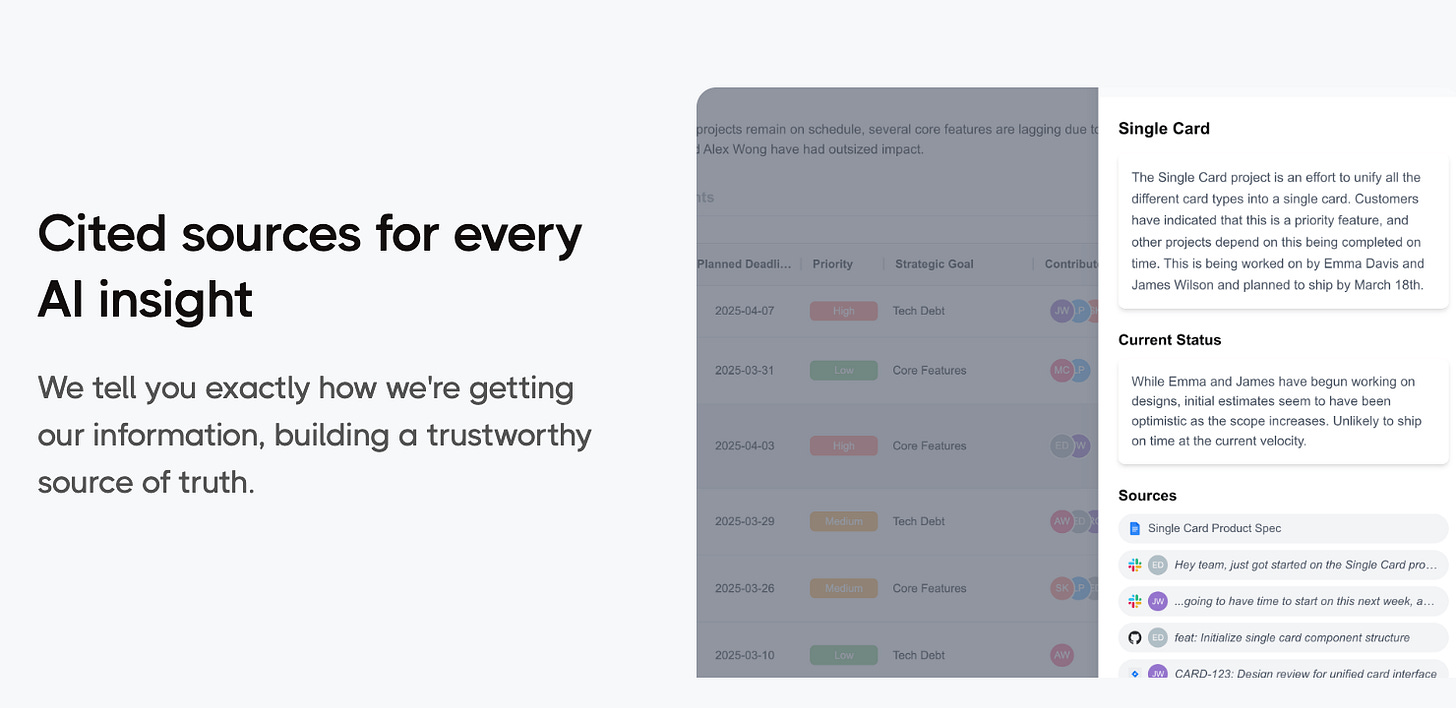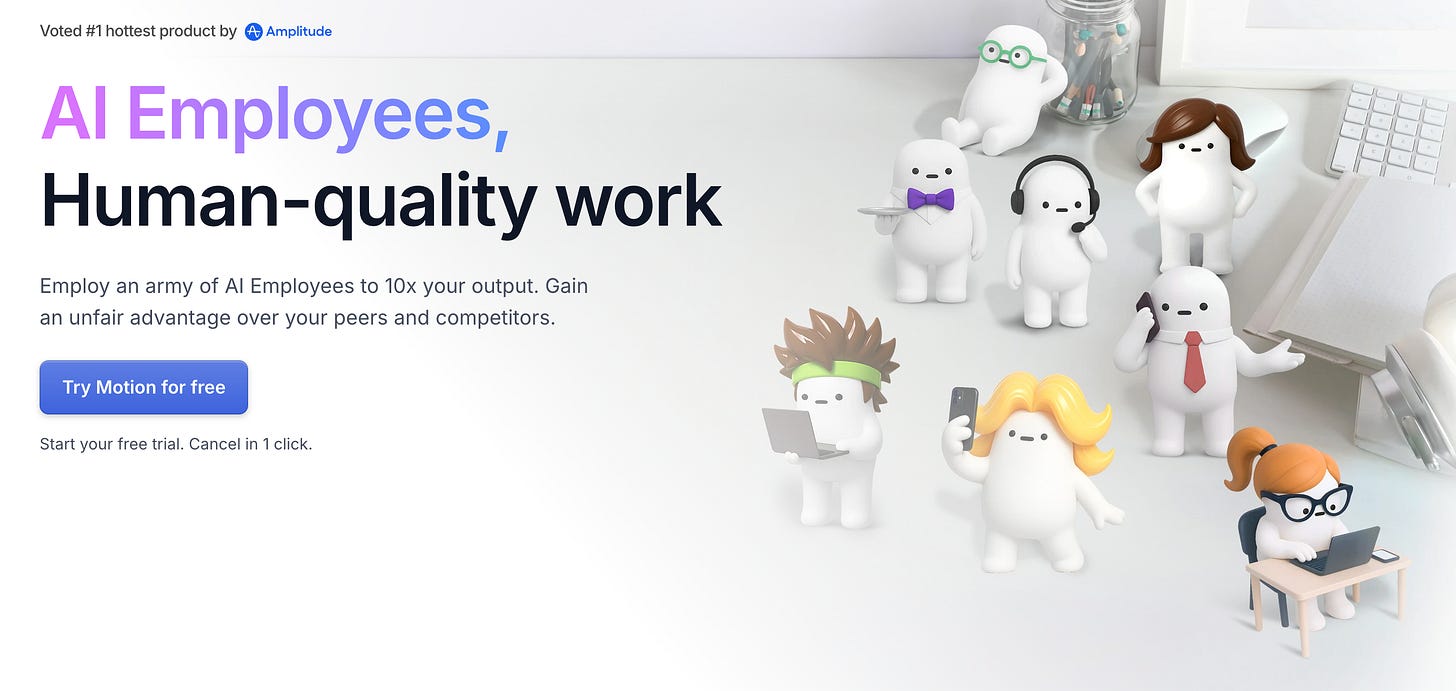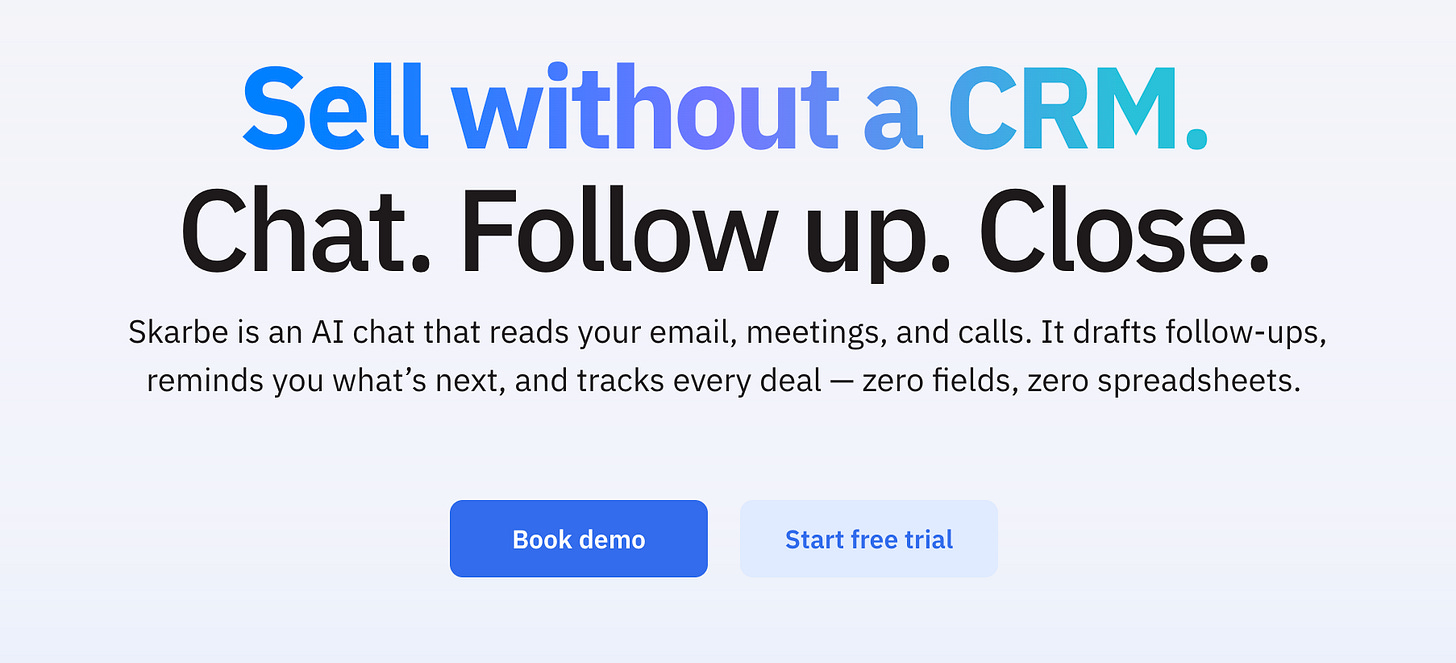Thriving in Chaos
Today’s featured startup is turning daily chaos into calm, one AI-generated report at a time.
Project Overview
As soon as a startup starts to grow, it naturally accumulates more employees, more projects… and its founders begin to lose sight of the day-to-day details. Issues only become visible once they’ve grown too big to ignore — which rarely ends well.
Oki has built an AI assistant that keeps track of what’s happening across the company.
To do that, Oki first needs to connect to all the platforms where work happens and results are tracked — GitHub, Notion, Slack, Jira, and so on.
Once integrated, Oki delivers daily reports each morning to founders and team leads — helping them stay in the loop and take action before small hiccups turn into big fires.
But Oki doesn’t just send lists of issues — it also explains them. You’ll get clear, human-sounding explanations like:
“This project hasn’t kicked off yet because Lisa hasn’t had time to start.”
“The project scope grew significantly, so Emma and James ended up spending far more time than expected on interface design.”
“Unplanned integration bugs started surfacing, which took extra time to resolve.”
“Alex won’t be available until next week — ideally, someone else should take over in the meantime.”
Oki also provides source links to back up each explanation — whether that’s a Slack message, GitHub comment, or something else. That way, you’re not just relying on AI guesses and you can dig into the original context yourself if needed.
Another twist: Oki adds a “stress level” score for each person on every project. Stress can spike if someone is overloaded or blocked by something. In those cases, the priority might be resolving the human problem — not pushing harder for output.
Oki went through Y Combinator this winter and just recently published its launch info on YC’s website.
What’s the Gist?
Zooming out, today’s Oki feels like the first confident step toward an actual AI takeover.
Think about it: if AI is already generating reports for leadership, what’s the next logical move? Employees start using AI to decide what to work on and how to communicate that work — so the reporting AI gives them the best possible performance review.
It’s SEO all over again. First came Google and its search algorithms. Then came SEO tools and experts showing us how to climb the rankings.
Oki is kicking off “project SEO” — employees start optimizing their work and how they report it to land at the top of the company’s productivity leaderboard.
And AI tools for that kind of optimization are already appearing. One example is Motion — an AI assistant that tells employees what to work on right now to keep their projects on track. The kicker? It reportedly doubles company productivity. Motion has raised $63.6M to date, including $36.5M just last summer.
Another YC alum, Bond, built a tool similar to Oki — monitoring company-wide projects and sending daily briefings to leadership.
Mesmer, also from the same YC batch, created a version geared toward engineering orgs — a dashboard for CTOs to stay on top of dev projects.
And then there’s Skarbe, a startup I wrote about a few days ago, which applies this whole idea to small businesses. It helps solopreneurs “sell without a CRM” — by remembering the entire sales process itself and simply telling the founder: who to message, when, and what to say.
So the human just follows instructions from the AI brain — and sales happen almost on autopilot.
Key Takeaways
Thriving in chaos means not just surviving the disorder, but stepping up to lead it — so you can shape it instead of being swept away by it. If we can’t prevent the rise of AI systems managing our workflows, we should aim to guide and shape that transformation — and ideally, build the tools that power it.
The overarching opportunity is clear: the creation of AI platforms designed to manage business processes end-to-end.
Imagine a system that combines Oki and Motion — one AI tracks progress, issues, and team stress levels; the other guides individual employees on what to prioritize next. Together, they complete the cycle — from planning and execution to real-time reporting and strategic adjustments. This kind of AI-powered loop could fundamentally reshape how modern companies operate.
Crucially, there’s room for specialization. These don’t have to be generic enterprise tools. In fact, there’s enormous potential in building AI platforms tailored to specific industries or functions — whether it’s a tool like Mesmer for overseeing engineering teams, or a Skarbe-style assistant helping small business owners manage sales without traditional CRM systems.
The key question becomes:
In which domain can AI be deployed fastest and deliver the highest productivity gains?
That’s where the next breakout platform should be built.
Company info:
Oki
Website: https://www.okiapplications.com/
Last funding round: undisclosed
Total funds raised: $500k+



